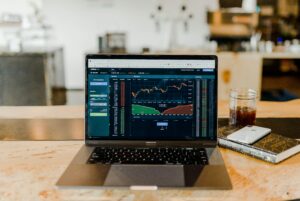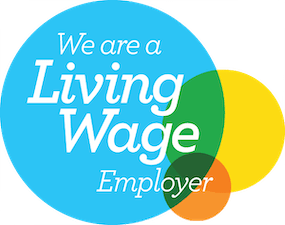The summer edition of Unbundling Uncovered, held on June 9th, brought together more than 600 registered attendees from the research market in our first virtual event for 2021 (Although we hope to be back in person at our Autumn event in November). As always, there was plenty to debate and discuss. Regulation was in focus, and this was led off by our keynote address from the UK’s FCA. The impact of the global pandemic on the research market permeated through much of the discussion and it’s clear that it has created many changes in behaviour and the perception of value of research. Then there was ESG – the proverbial elephant in the room – which looks set to reshape the research product of the future.
Recent evidence of regulatory roll back and loosening of rules on unbundling in Europe and the UK might suggest a return to a pre-2018 stance, and one of the key talking points at this event was whether it will lead to a mean reversion in behaviour from investors. Opinion was very much divided.
We would like to thank all of our fantastic sponsors, speakers and delegates for their contributions and support. We look forward to seeing you all again in the Autumn (Hopefully in person!).
If you registered on our virtual platform for this recent event, then feel free to login and watch back the replays. Alternatively, send an email to [email protected] with “replay” in the subject line. Note: We operate these events under Chatham House Rules, so please refrain from publishing any specific quotes from our speakers or redistributing footage without our explicit consent.
1) Regulation: Tinkering around the edges
The regulatory environment is confusing once again. It’s not clear whether the modest changes to the unbundling requirements in Europe and the UK are indications of more to come, or whether participants have stress-tested regulators’ propensity to roll back, and that this will now be the status quo.
There were differences of opinion regarding whether the FCA’s FICC carve out would survive after the consultation this summer. So if you are in the UK and you want FICC research to be potentially free then you should let them know before the 23rd June. Some speakers argued that MiFID II had created more problems than it had solved and also thought that making small changes in research regulations could just make things worse, and therefore changes should be comprehensive, if they happen. Others underlined that the pre-MIFID II research and execution markets needed fixing and so there had been concrete benefits to asset owners since January 2018. Opinion remains generally divided, largely along trans-Atlantic lines.
This becomes clear by some of the trends observed by some of the US-based speakers. For instance in the US CSAs/CCAs continue to grow in a market where participants advocate a much more market-led approach – rather than regulatory – towards increased transparency/accountability in the research market. Speakers cited the example of the growth of passive, amongst other factors, which has driven North American active managers forward on fee control and transparency, and a Gensler-led SEC may accelerate that.
2) Valuation in a virtual world
The move to virtual interactions last year created lots of tension with regard to how the value of interactions should be valued. The buyside argued the value of interactions should be lower given the one-to-many format. Brokers are now attempting to remove the dynamic of “valuation by channel”, i.e. the perception that virtual interactions should be automatically valued less than physical ones. The rationale is that virtual engagements can be efficient and deliver supplementary materials seamlessly. This underlines many brokers preference to “vote-led” research valuation processes rather than their “interactions-led” equivalents.
3) Research as a product or a service?
The pandemic has led to transformational change in the way research is distributed and consumed, and it’s clear that many of these recent trends are set to continue. We are now seeing a fragmentation of delivery channels. So it’s important for research providers to understand where their clients consume content and then align with that. Existing aggregators and provider portals will always be important, but increasingly the buy side is using social media to find research, and therefore providers are looking at ways to reduce the friction to consume their product at that point. We’re moving to a multi-channel strategy.
For instance, video and podcast delivery can create higher consumption metrics than traditional publications and calls. Also COVID has accelerated the adoption and reliance on technology that allows the buy and sell side to extract data from research content and let analysts concentrate on more bespoke interactions.
As for the quality of the research product, there are two opposing drivers at play. The longer-term gradual trend of juniorisation of sell side analyst teams, versus the lockdown-induced effect from reduced travel, which has meant that analysts have had more time to concentrate on their research, instead of marketing.
4) All aboard the ESG train
The ESG market presents the biggest opportunity in the research and data space and is constantly evolving today with demand increasing rapidly, noted numerous speakers. ESG teams at sell side firms are increasing as clients look to the sell side to figure out what matters and to be able to do the broader screens that allow investors to make single stock investment decisions based on that, with single stock integration being the gold standard. In other words, ESG isn’t just a data market, and the opportunity for research providers is to help investors understand the ESG headwinds and tailwinds, where the surprises can be down the road, how companies may or may not be resilient in the future, and where the structural ESG trends are going. (Thematic investing themes are key, and this is growing) Investors want to see differentiated research and context on data sets.
From a regulatory perspective, ESG is far from harmonised, with Europe and the UK leading the way, but the US is catching up, with speakers saying that the SEC has done more on ESG in the past 4 months than in the past decade, so the US will quickly catch up Europe and drive demand for ESG research and data. ESG data is in great demand, but so is research demystifying the new regulations and the data available.
5) Corporate access and conferences; virtual, physical or hybrid
The pace at which firms are returning to physical corporate access and conferences will depend on the situation by region, country and organisation. There will be differing attitudes to risk as we re-emerge from lockdowns, but there is no doubt that underlying all this is a real fear of missing out as the conference calendar returns.
Speakers underlined the important role the sell side will have as corporate access emerges from lockdowns, which may counteract the trend of buy side firms going direct to corporates. Hybrid events sounds good but will be complex to manage and will create awkward supply and demand dynamics – how to ensure attendance in person that creates critical mass and value to attendees etc.








